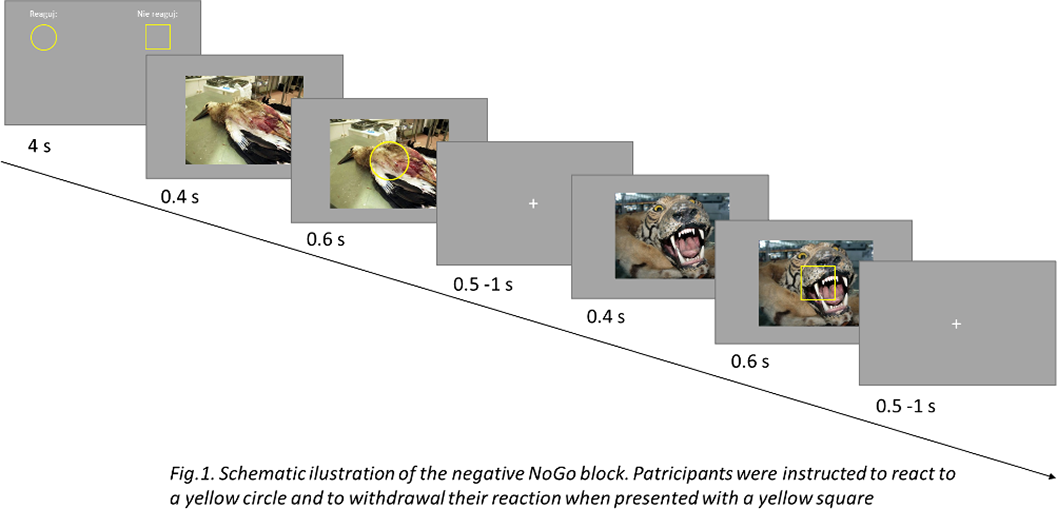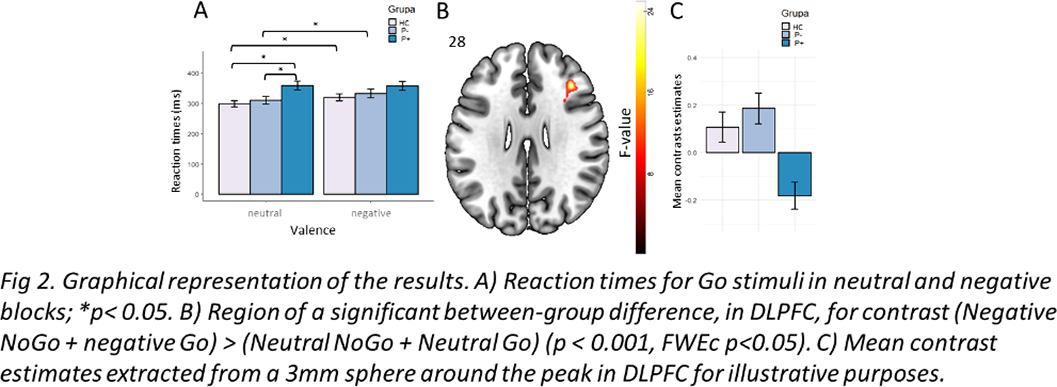No CrossRef data available.
Published online by Cambridge University Press: 13 August 2021
The pedophilic disorder is characterized by a sexual preference for children and leads to child sexual abuse (CSA) in half of the patients. Studies showed that pedophiles with a history of CSA (CSA+) are inferior, in inhibitory control, to those without (CSA-).
Inhibitory control may be influenced by negative affectivity, which was shown to be a state factor facilitating sexual abuse. Nevertheless, it is not known if distress influence CSA+ and CSA- equally.
We recruited three groups of participants: healthy controls (HC) CSA+ and CSA- who performed an emotional Go-NoGo block task. The task was design specifically to correspond to a situation in which an indivisual is opposed by a negative life event. In each trial, participants were presented with photographs, either of neutral or negative valence, which did not require reaction. After the photographs, a circle (Go stimuli) or a square (NoGo stimuli) was presented.
We found that HC and CSA- had slower reaction time in negative compared to neutral condition (regardless of the block type), while CSA+ did not. Consequently, HC and CSA- showed increased activation in the right dorsolateral prefrontal cortex (DLPFC) in negative compared to the neutral condition, what was not observed in CSA+.
DLPFC is crucial for cognitive control, however, the activity of this region is modulated by emotional valence. Reduced engagement of dlPFC in CSA+ in negative condition (irrespectively of the task instructions), suggest that negative emotions in CSA+ disrupt also other aspects of cognitive control, rather than inhibition specifically.
Comments
No Comments have been published for this article.